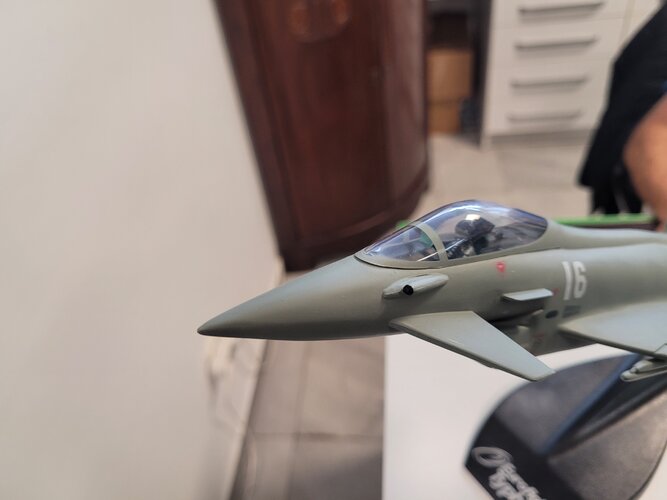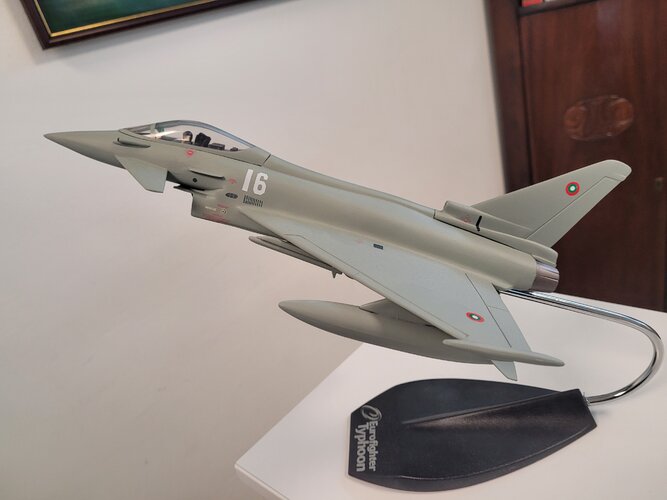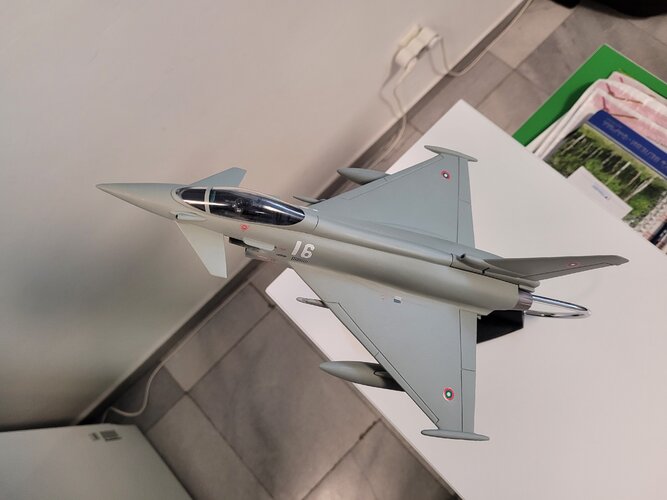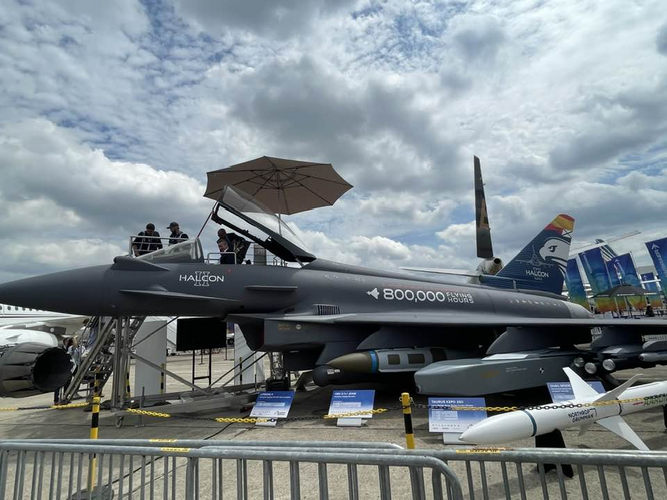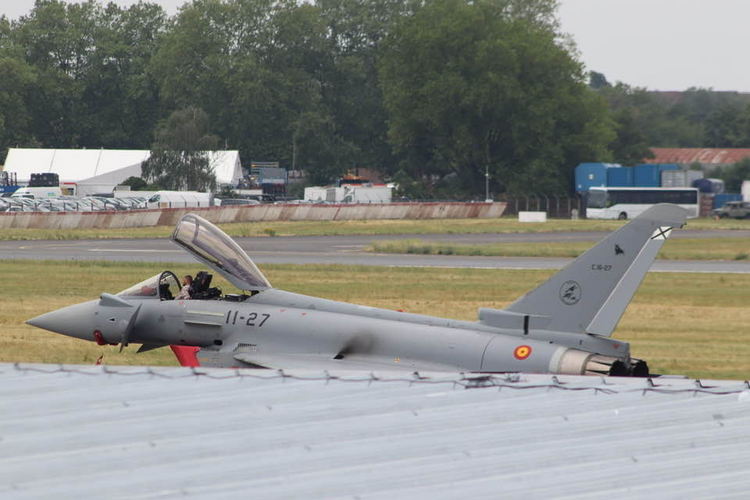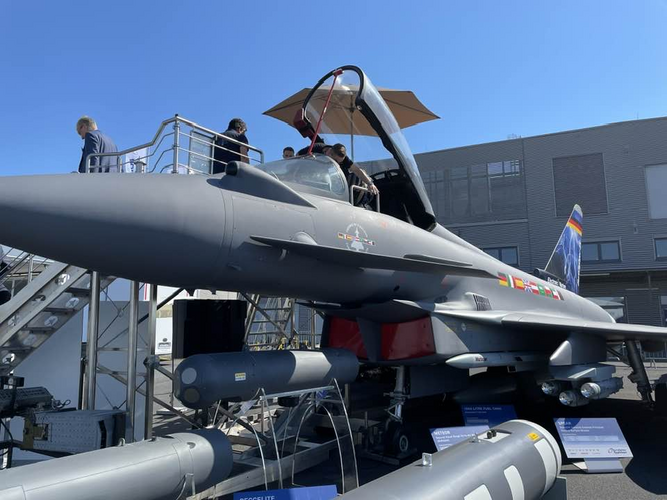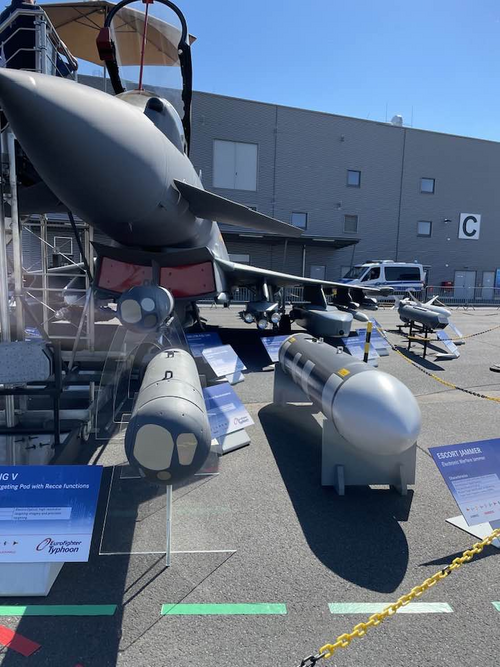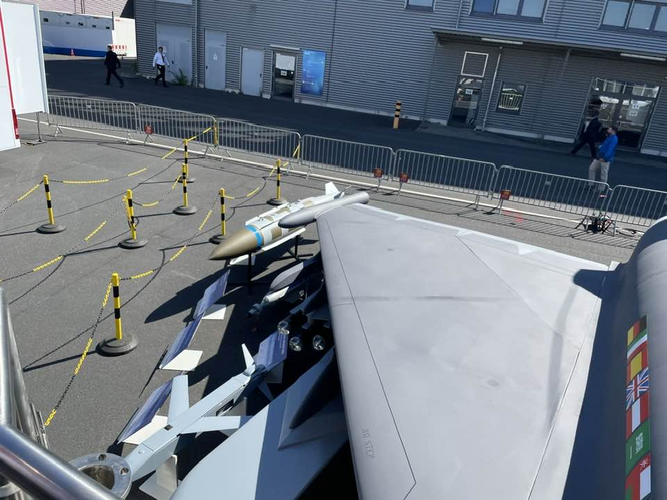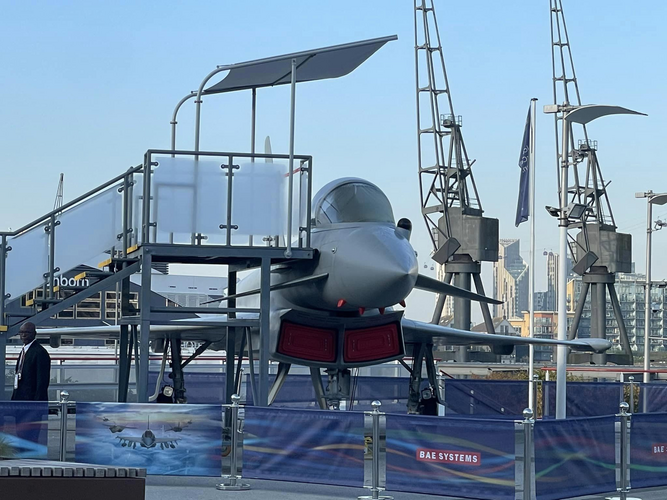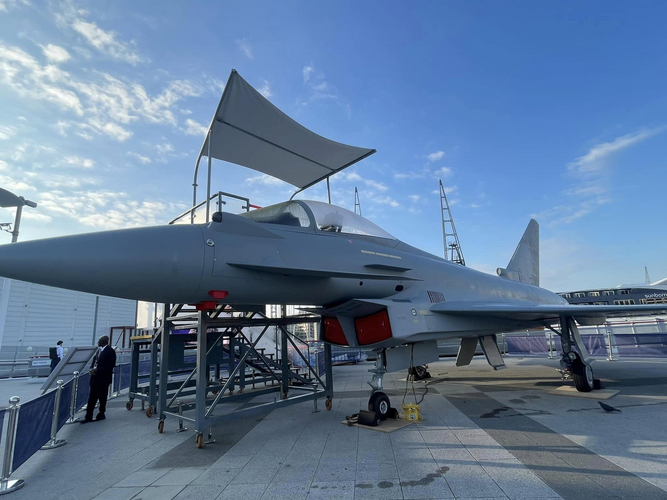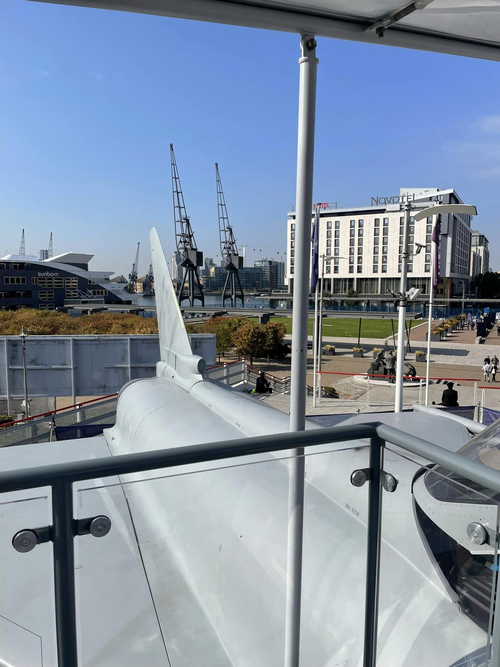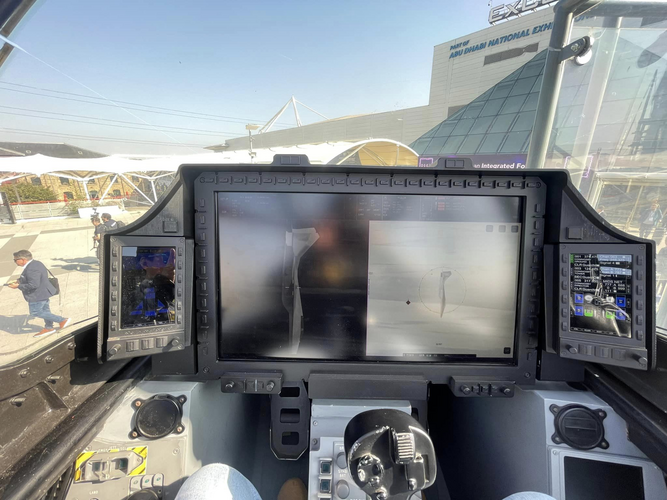Be interesting to see if this goes anywhere...
View: https://twitter.com/olivernmoody/status/1706682331690369050
Article Text
Rishi Sunak has privately urged the German chancellor to unlock a flagship delivery of Eurofighter Typhoon combat jets to Saudi Arabia, The Times understands.
The prime minister has put himself at the centre of a concerted lobbying campaign to persuade Germany to approve the sale of the 48 jets, which is likely to carry a price tag of well over £5 billion and has been identified as a strategically vital interest for Britain.
The UK is believed to have threatened to use a long-established legal clause to try and cut Germany out of the order altogether amid intense disputes within the ruling coalition in Berlin.
The Typhoon was developed from the middle of the 1980s by a consortium of defence companies including BAE Systems from Britain and counterparts in Germany, Italy and Spain, under the aegis of Nato. This means
Berlin has a veto over any future sales.
About 5,000 jobs at BAE factories and a further 15,000 around the UK still
depend on the Typhoon programme, which contributes roughly £1.4 billion a year to the British economy, according to a report published by the company last year.
Saudi Arabia has already bought 72 of the aircraft and five years ago it signed a memorandum of understanding with the UK to acquire a further 48.
The deal later stalled as the UK and Germany
suspended arms exports to the country because of its involvement in the civil war in Yemen, where airstrikes by a Saudi-led coalition are alleged to have killed thousands of civilians.
The Typhoon was developed by a consortium of defence companies from Nato member states, which means that sales can be blocked by Berlin.
In recent months the prospects of a sale have been revived following a UN-brokered ceasefire in the conflict. In July, however, Olaf Scholz, the German chancellor, caused consternation in London by announcing that Germany would not approve the delivery in the foreseeable future.
In response Britain has put Germany under intense diplomatic pressure to relent, according to officials.
The UK believes the sale is important for the financial health of its defence industry and several thousand jobs at BAE factories, notably at Samlesbury and Warton in Lancashire. It also hopes that Saudi Arabia will invest in the Tempest programme, a British-Italian-Japanese project to develop a next-generation fighter jet.
Last month Sunak is said to have raised the issue in a telephone call with Scholz. Sources say Scholz replied that he understood the UK’s position but had difficulty winning over some of his coalition partners.
That same week Sir Tim Barrow, the UK national security advisor, is understood to have made a robust case for the deal at a meeting in the German defence ministry. A British diplomat was also dispatched to try and talk around leading opponents in the Bundestag.
The Britons pointed to a clause in the original Eurofighter contracts that provides for their components to be manufactured elsewhere if one of the members of the consortium blocks the export of the jets.
The possibility of legal action was first reported by Handelsblatt, a German business newspaper. However, the UK is believed to have reservations about getting stuck in a court case that could drag on for years and poison the Anglo-German relationship with no certainty of success. German officials also believe the underlying legal arguments are weak.
Scholz’s government is divided over the Eurofighter question. The chancellor, his inner circle and several other figures in his ruling coalition are thought to favour giving the delivery the green light. Last year Scholz approved licences for the sale of Eurofighter spare parts to Saudi Arabia in a move that was seen as testing the waters for a broader shift in policy.
A German source said a new draft law contained a provision for exports of multinational weapons systems such as the Typhoon to be put to a vote between Germany and the partner countries involved, with each commanding a weight proportional to its share of the added value in the project. This could allow Britain and other contributors to override German objections.
The source said Germany’s participation in next-generation projects such as a Franco-German jet fighter and battle tank was at stake and it risked being frozen out in future.
However, any such reform is likely to get bogged down in heavy infighting in the Bundestag. Scholz’s Green party allies will be crucial. Robert Habeck, the Green vice chancellor and business minister responsible for arms export policy, is said to be open-minded.
Yet other influential figures in his party remain strongly opposed to selling weapons to regimes accused of human rights abuses or war crimes, referring to a commitment along these lines in the Scholz government’s founding coalition agreement.
Sara Nanni, the Green party’s lead MP on military affairs and a member of the Bundestag’s defence committee, said the UK, France and Germany’s other close defence partners should pay more heed to the chance that their weapons might be deployed in breach of international law or against their strategic interests.
She noted that in the past Germany and some of its allies had considered “normalising” arms exports to Russia.
“The exports from all other high-value European [defence] exporters will also endanger Germany’s security if they are sent to problematic customers without Germany’s agreement,” Nanni told Europäische Sicherheit & Technik, a specialist military journal.
A UK government spokesman said Britain was “working closely” on the Eurofighter issue with its counterparts in Germany, Italy and Spain.
“Last year we welcomed Germany’s decision to extend export licences for parts for Saudi Arabia’s existing Eurofighter aircraft for three years,” the spokesman said. “The UK remains steadfast in its commitment to our strategic defence relationship with the Kingdom of Saudi Arabia.”
A German government spokesman said: “As a matter of principle the federal government does not comment on matters of internal co-ordination.”
Analysis: Why is No 10 so keen on this deal?
Much is riding on the outcome of Britain’s efforts to persuade Germany to give up its opposition to delivering a consignment of Eurofighter Typhoon jets to Saudi Arabia (Oliver Moody writes).
The implications of Berlin’s decision will go beyond the order for 48 combat aircraft — potentially influencing the future of the British defence industry and the readiness of Germany’s allies to work with it on several sensitive next-generation weapons projects.
For the UK government, it is an opportunity to secure 5,000 jobs and more than a billion pounds of investment at the Lancashire factories of BAE Systems, which is understood to have been identified as a strategically important national champion.
Britain is also keen on bringing Saudi Arabia into the Tempest programme, under which the UK, Italy and Japan aim to develop an advanced new stealth fighter jet by 2035.
For Berlin it is a question of the delicate balance between values and realpolitik in an increasingly unstable and threatening world. Olaf Scholz, the chancellor, famously responded to Russia’s full-scale invasion of Ukraine by declaring
a Zeitenwende, or “watershed moment”, in Germany’s security and foreign policy.
However, the government’s arms export rules remain more or less as strict as they were before 2022. This has long been a source of frustration to the UK and other partner countries that have spent a good deal of time and money on developing big-ticket weapons systems, such as the Eurofighter with German involvement, and are keen to ensure that these projects pay for themselves.
Several cutting-edge arms programmes are at stake, including the French, German and Spanish future combat air system jet project — a putative rival to the Tempest — and the Franco-German main combat ground system, which is a successor to the current generation of Leopard 2 and Leclerc battle tanks. Both have stalled and are at risk of further delay or cancellation amid ructions between Berlin and Paris.
Those in favour of keeping Germany’s arms export rules tight, including most of the Green Party, say this is as much a practical matter as a moral one: as Russia has shown, today’s tentative negotiating partner could be tomorrow’s adversary.
Nor, they argue, can Germany afford to compromise on its principles towards autocratic regimes that have flouted human rights, as Saudi Arabia did during the Yemeni civil war.
But Scholz and other senior politicians in his coalition are believed to be acutely aware that this is precisely what some of their allies expect as the price of Germany’s credibility and reliability as a military ally.


